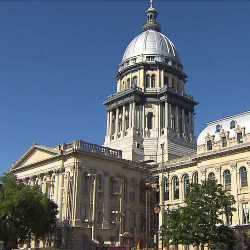TV Gambling Advertising in UK Booming

All day long, we’re exposed to advertising, be it on the websites we look at, the billboards that we drive past, or at home while watching television. Many industries rely on TV advertising as a method of building their brands, and in the United States, you may occasionally see casinos advertised during your favorite programs. In the UK, however, the gambling industry relies heavily on TV advertising, which is raising some eyebrows among those concerned with the social impact associated with gambling.
UK Gambling Industry Growth
According to the UK Gambling Commission, gambling operators generated £12.6 billion in gross gaming yield for the year long period between October 2014 and September 2015. From that figure, online gambling accounted for £3.6 billion of revenues, with the sector therefore representing around 29% of the UK’s overall gambling market.
TV Gambling Advertising Booming
Between 2012 and 2015, gambling companies based in the UK spent £456 million on television advertising. When you add the amount spent on running ads for lotteries, the total amount spent rises to above £631 million. These numbers alone are staggering, but when you put that into the context of how much gambling companies invested in advertising 10 years ago it becomes even more incredible.
In 2006, there were reportedly 152,000 gambling ads on television in the UK over the course of the year. In 2008, just a year after the implementation of new relaxed gambling laws, the number of ads skyrocketed to 537,000, and by 2012, there were 1.39 million gambling commercials running on British televisions.
Relaxed Laws Introduced in 2007
In 2007, the UK’s relaxed gaming laws established by the Gambling Act of 2005 came into effect. The law affected many aspects of the gambling industry, but one of the biggest changes happened in the area of advertising. Prior to the adoption of the new regulations, only football pools, bingo halls and the National Lottery were permitted to run TV ads in the UK. The new laws, however, eliminated that stipulation and instead allowed gambling operators to advertise during certain times of the day, as well as during major sporting events like the World Cup.
One might assume that the subsequent huge increase in gambling advertisements was due only to the fact that more gambling businesses could now advertise; however, a look at the numbers shows that assumption is incorrect. Prior to 2006, bingo halls were allowed to advertise on TV, yet in 2012, the number of bingo ads had risen to 532,000; that’s 3.5 times the total number of ads for all of the forms of gambling that were allowed to be promoted on television back in 2006.
To put the advertising growth into perspective, in 2006 gambling-related ads accounted for 0.7% of the UK’s TV advertising market. By 2008, that percentage had risen to 1.7%, and in 2012, gambling ads increased further to represent 4.1% of the UK’s commercial television.
Essential For Branding Efforts
What’s clear from that fact is that television advertising is seen as being vital to branding efforts across the entire gambling industry. Although the UK gambling market continues to grow every year, operators are competing heavily for British gambling pounds, in order to set themselves apart from the competition, strengthen their brand image, and increase their market share. Television seems to be the medium that operators believe is most effective at accomplishing these goals.
Responsible Gambling Concerns
While TV ads for gambling seem to be viewed as beneficial by operators, those concerned about gambling addiction in the UK are worried about the continued increase in advertisements. There are currently calls for regulators to rethink the Gambling Act of 2005 and place some restrictions on the frequency with which gambling TV ads can be run. In 2013, the Daily Mail posted a story which claimed that between 2005 and 2013, gambling ads in the UK increased by more than 1,400%. The story further asserted that the average UK child saw 200 gambling advertisements each year, thus raising concerns over the impact they could have on children and problem gamblers. As British Liberal Democrat politician Tessa Munt commented at the time:
“The real problem with these adverts is they make gambling seem normal.”
The Office of Communications (Ofcom) is a government-approved body responsible for regulating the UK’s broadcasting, telecommunications and postal industries. In the UK, the regulator restricts the amount of advertising to an average of 7 minutes per hour, with an upper limit of 12 minutes outside of the 6pm and 11pm watershed.










